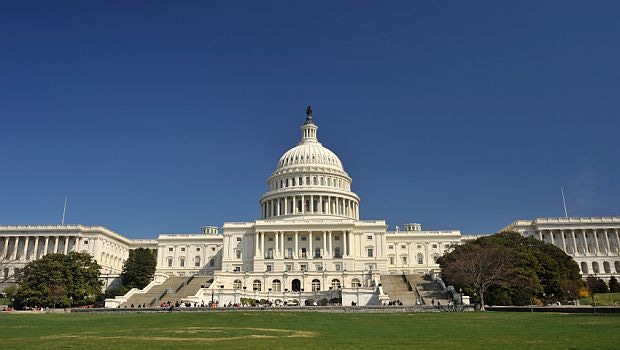Bill to address rural veterinary shortages
Bipartisan bill eliminates taxes on programs that encourage veterinarians to practice in underserved areas.

Sens. Mike Crapo (R., Ida.) and Debbie Stabenow (D., Mich.) reintroduced bipartisan legislation April 12 to address the veterinarian shortage in rural areas. If passed, the Veterinary Medicine Loan Repayment Program Enhancement Act (S. 1163) will play a critical role in addressing regional shortages of food animal and public health veterinarians in rural and agricultural communities.
The bill would help meet the growing demand for veterinarians nationwide by eliminating taxes on programs that encourage veterinarians to practice in underserved areas.
In 2019, the U.S. Department of Agriculture’s National Institute of Food & Agriculture (NIFA) designated 190 regions in 44 states as suffering from shortages of food animal or public health veterinarians -- the most in the program’s history.
The American Veterinary Medical Assn. (AVMA) said student debt is, unfortunately, a key driver of these shortages: In 2018, average student debt for veterinarians who graduated with loans topped $180,000. At the same time, food animal veterinary careers typically pay less than companion animal veterinary careers. “This income disparity can make it financially challenging for new veterinarians to pursue opportunities in food animal medicine,” AVMA said.
Veterinarians are a critical part of ensuring access to a safe and high-quality food supply. However, nearly every state has a rural community that suffers from a shortage in essential veterinary services.
To help address this concern, Congress established the Veterinary Medicine Loan Repayment Program (VMLRP) in 2003. The program assists selected food animal and public health veterinarians with student loan repayment in exchange for a three-year commitment to practice in areas of the country facing a veterinarian shortage. The program helps veterinarians with daunting student loan debt make a living in a community where starting a practice may be otherwise financially impossible.
While VMLRP has been tremendously successful in closing access gaps since its inception in 2010, shortage areas persist, and the program consistently receives more applications than funding allows, AVMA added.
“Veterinary shortages are one of the many significant challenges facing farmers and ranchers today,” AVMA president Dr. John de Jong said. “If we don’t take steps to address these shortages, we’re likely going to see an increase in animal disease incidents that impact our economy and even public health.”
The Veterinary Medicine Loan Repayment Program Enhancement Act will end a withholding tax applied to program awards, thus freeing up additional funding for rural veterinary care so the program can serve more rural communities without expanding its budget.
“Access to quality animal care remains critical to the needs of Idaho’s agricultural economy,” Crapo said. “Far too often, ranchers and farmers cannot access adequate care for their livestock due to a lack of veterinarians in rural areas. Our legislation will facilitate an increase of veterinary doctors serving in rural areas where they are needed most, helping to strengthen rural economies and protecting the safety of our food supply.”
“Veterinarians are vital to animal welfare and our agricultural economy in Michigan and across the country,” Stabenow said. “This bill creates opportunities for veterinarians to practice in underserved areas to ensure our small towns and rural communities can access quality veterinary care to protect livestock health and ensure a safe food supply.”
VMLRP is subject to a significant 39% federal withholding tax on the assistance provided to qualifying veterinarians. This overly burdensome tax limits the reach of the program and its benefits. S. 1163 would address this limitation by providing an exemption from the federal income withholding tax for payments received under VMLRP and similar state programs, allowing more veterinarians to have the opportunity to practice in small, rural communities where their services are in critical need.
Additional co-sponsors of the legislation include Sens. Tammy Baldwin (D., Wis.), Cory Gardner (R., Colo.), Angus King (I., Maine), Amy Klobuchar (D., Minn.), Kirsten Gillibrand (D., N.Y.) Bob Menendez (D., N.J.) and Jim Risch (R., Ida.).
About the Author(s)
You May Also Like





